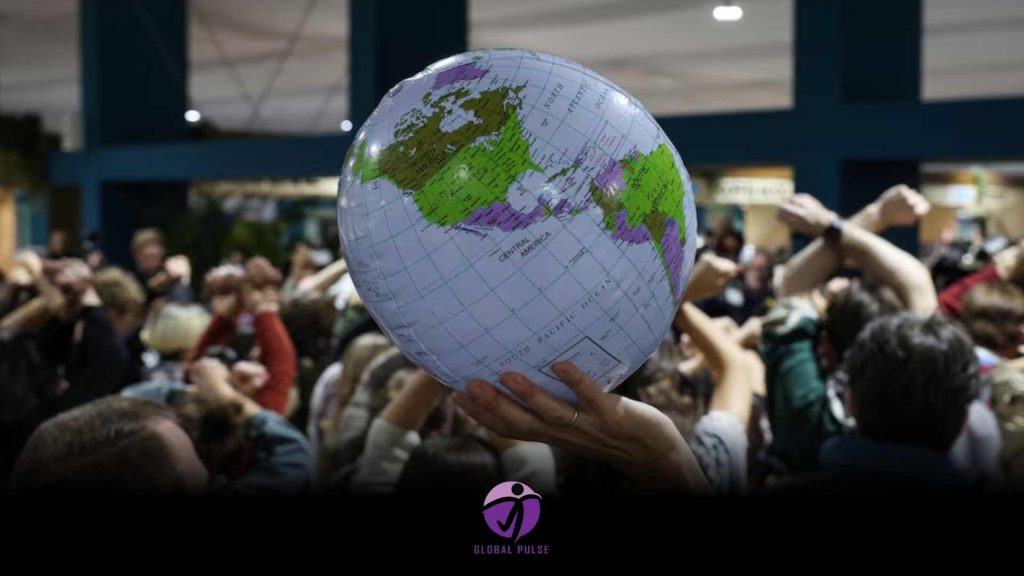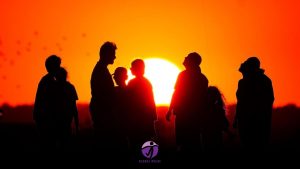At the COP29 climate summit, sources revealed to Reuters that the European Union, United States, and other affluent nations have agreed to increase their global finance target to $300 billion annually by 2035.
The summit, originally scheduled to conclude on Friday, extended beyond its planned timeframe as negotiators from nearly 200 nations worked to achieve consensus on a climate funding plan for the upcoming decade.
A significant change in stance emerged following a $250 billion proposal for a deal crafted by Azerbaijan’s COP29 presidency on Friday, which faced sharp criticism from developing nations for being perceived as insultingly inadequate.
The extent to which the updated stance of affluent nations has been conveyed to developing countries during COP29 remains to be determined, raising questions about its potential effectiveness in garnering their backing.
According to five sources familiar with the confidential negotiations, the EU has agreed to accept the increased figure. According to two sources, the United States, Australia, and Britain have also expressed their support.
Both a spokesperson for the European Commission and a representative from the Australian government refrained from providing comments regarding the ongoing negotiations. Requests for comment from the U.S. delegation at COP29 and the UK energy ministry went unanswered.
On Saturday, delegates anticipated a new draft text concerning the climate finance deal as negotiators labored throughout the night to reconcile significant differences in their positions.
The recent COP29 discussions have highlighted the stark contrasts between affluent nations grappling with limited domestic budgets and developing countries struggling under the escalating financial burdens of climate-induced storms, floods, and droughts.
The newly established objective aims to supersede the earlier pledge made by developed nations to allocate $100 billion annually in climate finance to support developing countries by the year 2020. The objective was achieved two years behind schedule in 2022 and is set to expire in 2025.
Information
Reaching any agreement will necessitate consensus on factors beyond merely the headline figure.
Throughout the two-week summit, negotiators have diligently addressed critical questions regarding the target, including the contributors and the proportion of funding available as grants versus loans.
The list of countries obligated to contribute comprises approximately two dozen industrialized nations, including the United States, various European countries, and Canada. This roster originates from an agreement reached during U.N. climate discussions in 1992.
European governments call on other nations to contribute financially, explicitly targeting China, the world’s second-largest economy, and the affluent Gulf states known for their oil wealth.
The election of Donald Trump as President of the United States, who has labeled climate change a hoax, has created uncertainty surrounding the discussions taking place in Baku. Negotiators from affluent countries anticipate that the largest economy in the world will refrain from contributing to the climate finance objective throughout Trump’s forthcoming four-year tenure.
The draft deal released on Friday outlines an ambitious target of securing $1.3 trillion in climate finance each year by 2035, a figure economists assert is necessary. This funding would encompass contributions from both public and private sectors.
All options are presented in the table.
Representatives from less affluent nations have expressed concerns that an inadequate financial agreement at COP29 could severely hinder their capacity to establish more ambitious goals for reducing greenhouse gas emissions, which are driving climate change.
Sierra Leone’s Environment Minister Jiwoh Abdulai informed Reuters that the recently proposed target of $250 billion for 2035 would not represent a genuine increase in support when adjusted for inflation.
Negotiations surrounding these figures have spanned three years. “As we conclude these three years, we find ourselves with nothing,” Abdulai stated, emphasizing that the agreement requires more robust language to facilitate more accessible access to funding.
On Saturday, the group of least developed countries within the U.N., including Sierra Leone, is set to outline its non-negotiable terms for an agreement to the president of COP29.
He stated to Reuters that a walkout from negotiations “should be on the table.” Every possibility must be considered.












